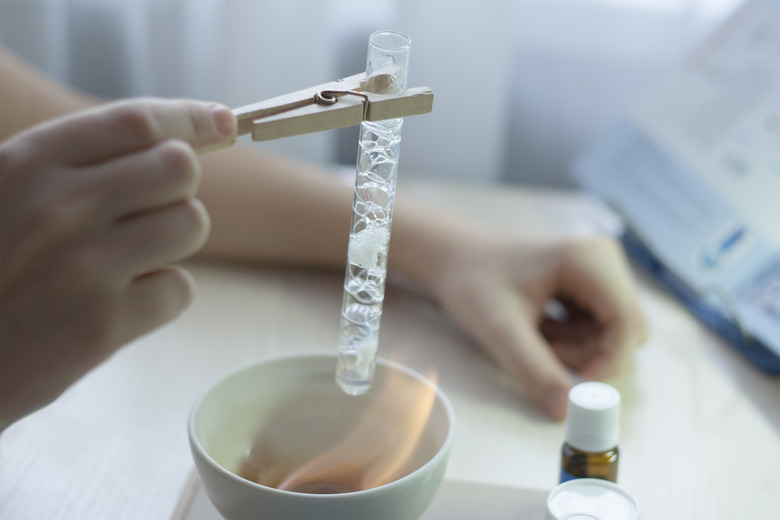What Is A Nonvolatile Solute?
When you put sugar in a cup of water and stir the mixture, the sugar dissolves. The sugar is not likely to evaporate out of the solution of water because it is an example of a nonvolatile solute. On the other hand, volatile solutes such as essential oils mixed with water can easily evaporate and become a gas. An easy way to tell volatile and nonvolatile solutes apart is by their smell. The sugar in your cup of water does not have an easy-to-detect aroma, while the lemon essential oil can fill the room with its fragrance.
TL;DR (Too Long; Didn't Read)
A nonvolatile solute does not produce vapor pressure in a solution, which means the solute cannot escape the solution as a gas.
Nonvolatile Solutes
Nonvolatile Solutes
A typical solution has a solvent and solute. Water is one of the most common solvents, and you can study how different solutes act in it. For example, nonvolatile solutes do not evaporate and become a gas. They have low vapor pressure, but their boiling point tends to be high.
Volatile vs. Nonvolatile Solutes
Volatile vs. Nonvolatile Solutes
Volatility refers to how easily a solute can become a vapor or gas. In general, a substance with a boiling point of less than 100 degrees Celsius (212 degrees Fahrenheit) is volatile, which means it can vaporize. Substances with higher boiling points are nonvolatile.
You can raise the temperature of the cup of water with sugar mixed in it until the solvent or water evaporates. However, the sugar molecules or solute do not become a gas. In contrast, when you heat up the lemon essential oil mixed with water, the solute molecules evaporate. This is another fundamental difference between volatile and nonvolatile solutes. The volatile ones create vapor that has both solute and solvent molecules while the vapor of nonvolatile ones only have solvent.
Volatile and Nonvolatile Impurities
Volatile and Nonvolatile Impurities
Nonvolatile impurities can increase the boiling point of the solution. If you add extra substances to the cup of water and sugar, it will take more effort to reach the boiling point. This happens because there are fewer free water molecules that can evaporate, and the partial vapor pressure of the water decreases. Alternatively, volatile impurities can lower the boiling point of the solution if they do not react with the solution. However, if the volatile impurities have a reaction, then it is harder to predict the boiling point because the reaction may either increase or decrease it.
References
Cite This Article
MLA
Bandoim, Lana. "What Is A Nonvolatile Solute?" sciencing.com, https://www.sciencing.com/what-is-a-nonvolatile-solute-13710433/. 23 March 2018.
APA
Bandoim, Lana. (2018, March 23). What Is A Nonvolatile Solute?. sciencing.com. Retrieved from https://www.sciencing.com/what-is-a-nonvolatile-solute-13710433/
Chicago
Bandoim, Lana. What Is A Nonvolatile Solute? last modified March 24, 2022. https://www.sciencing.com/what-is-a-nonvolatile-solute-13710433/
